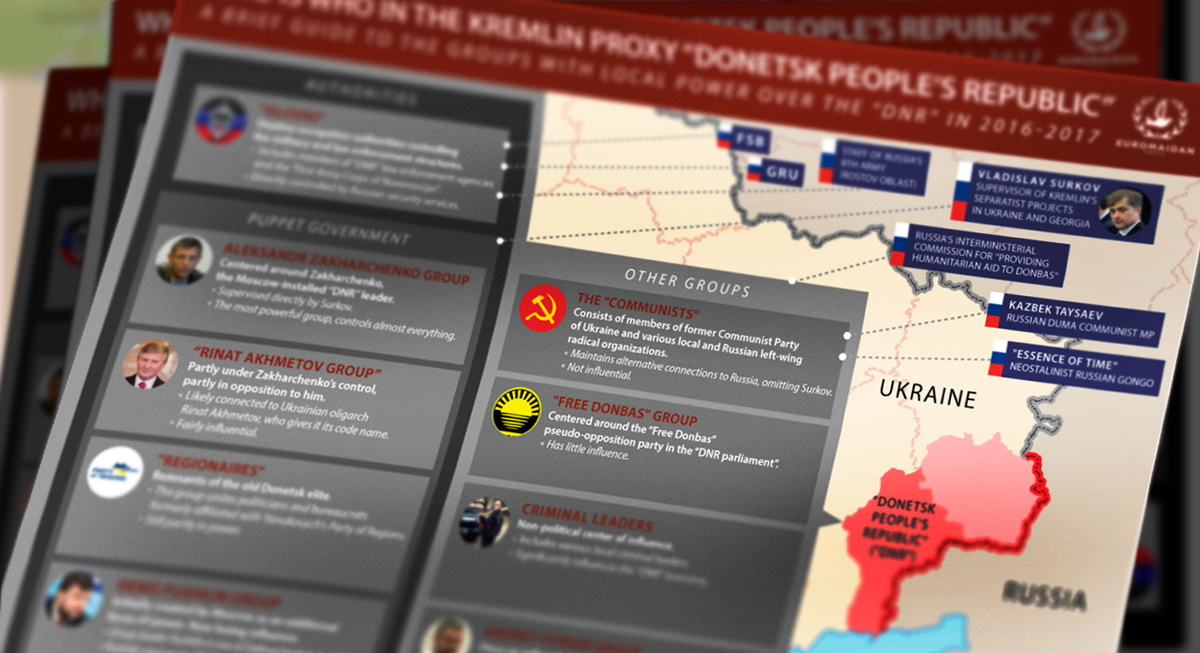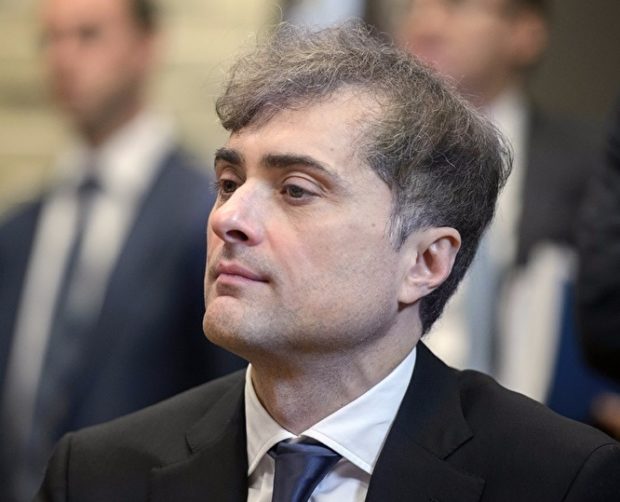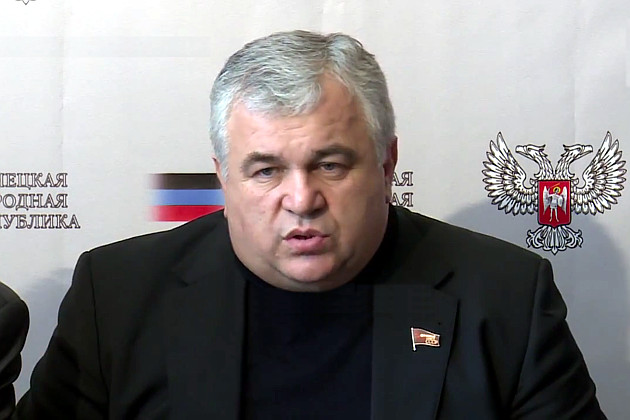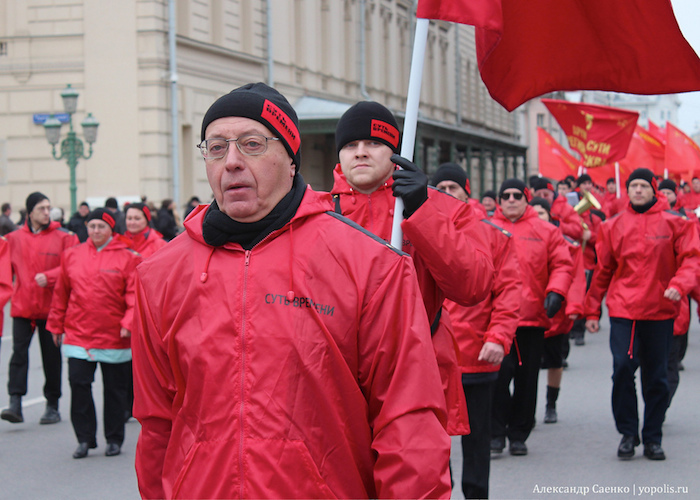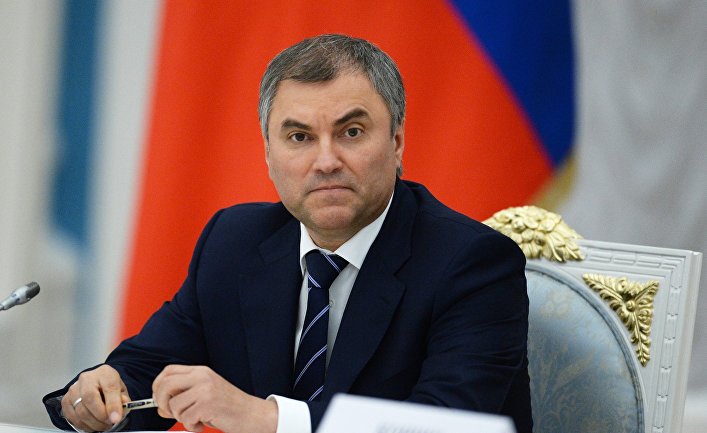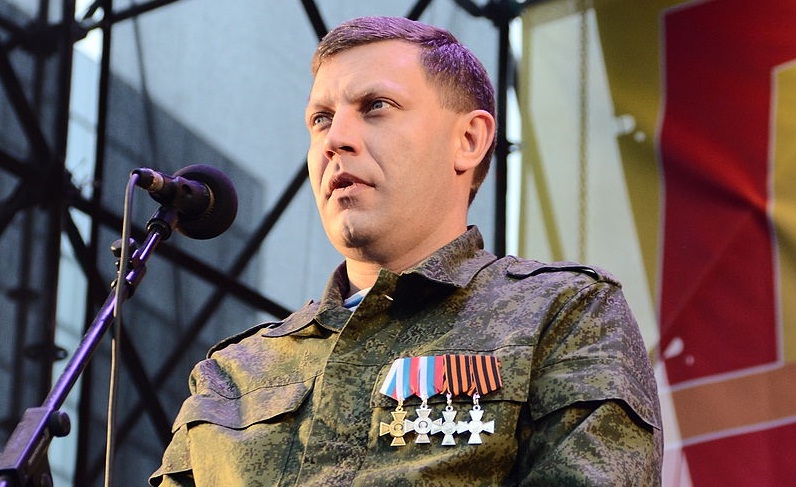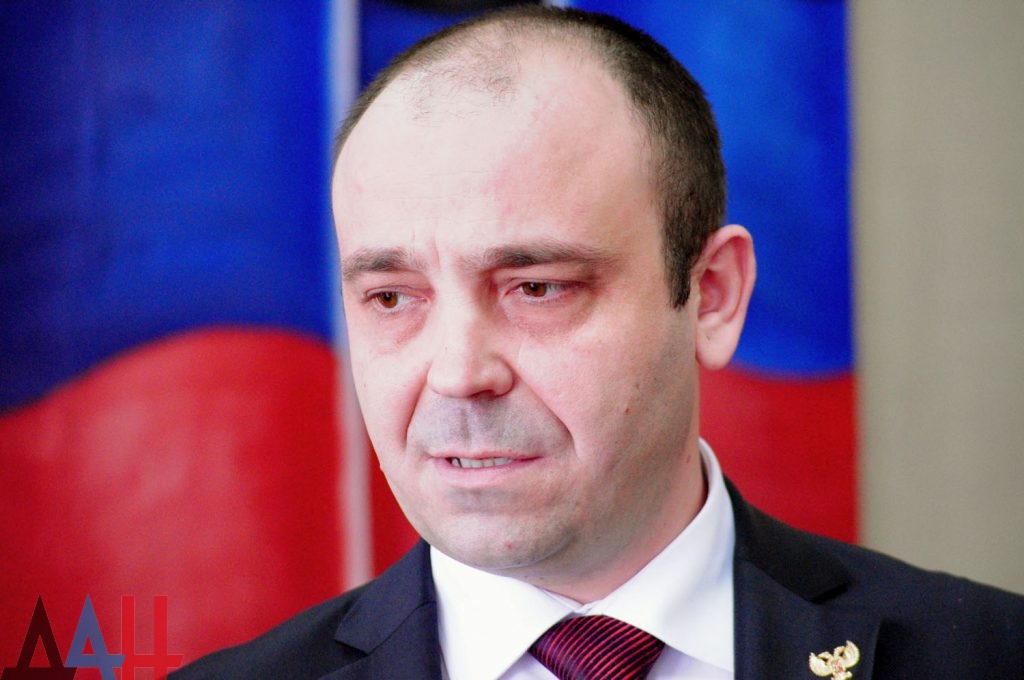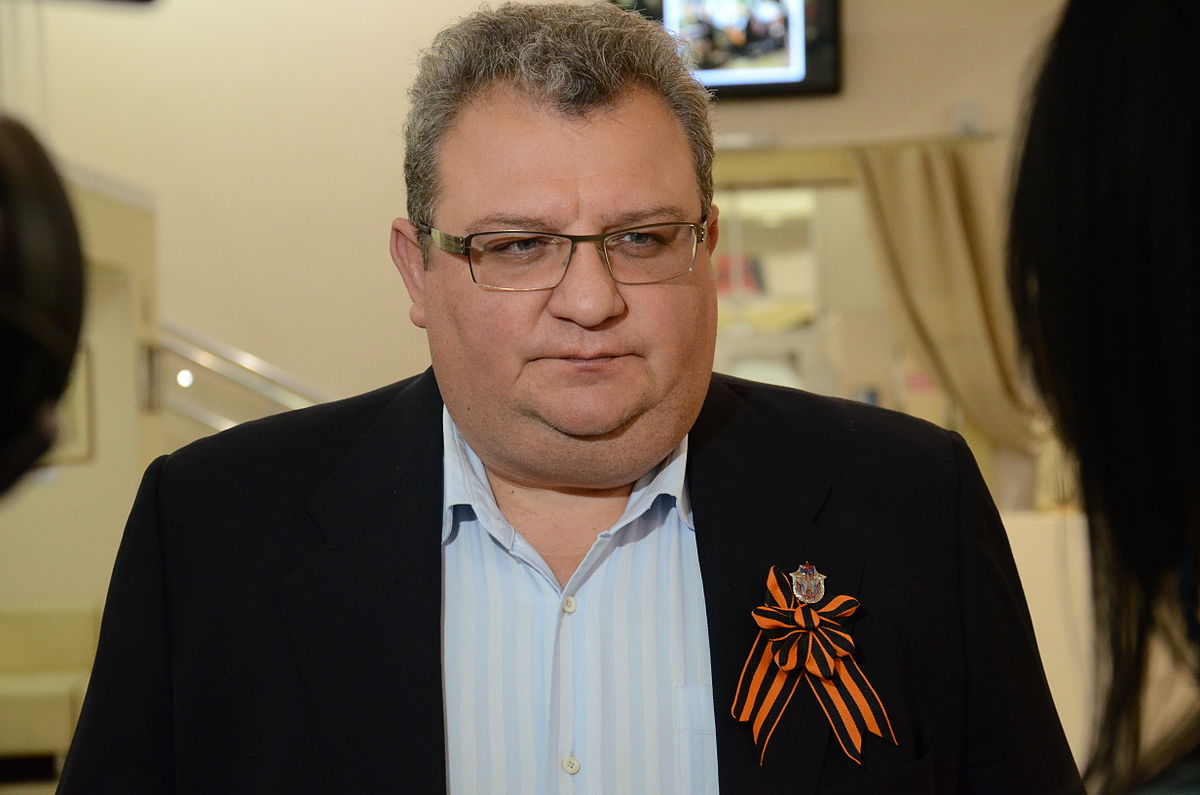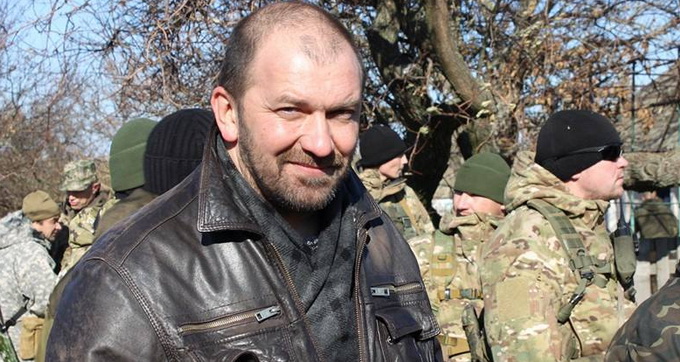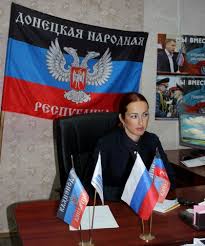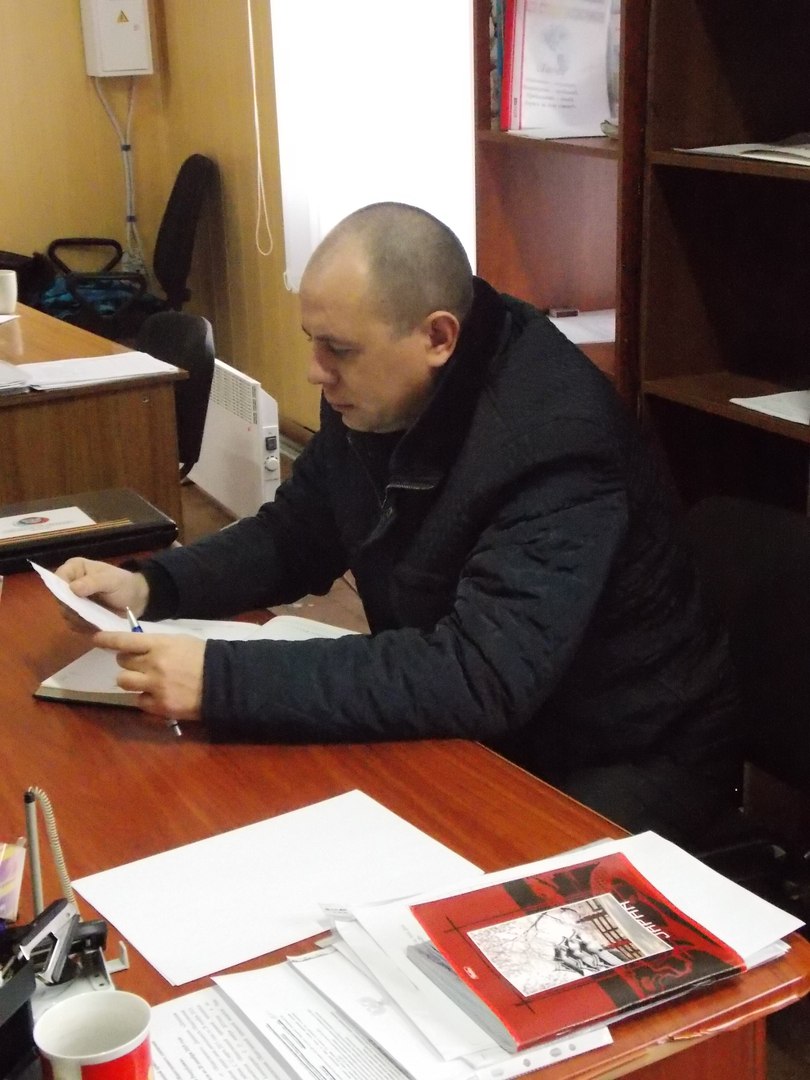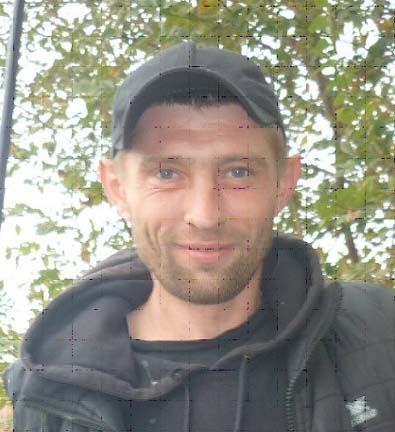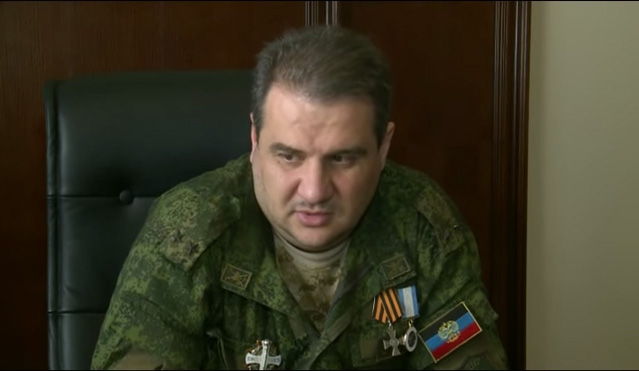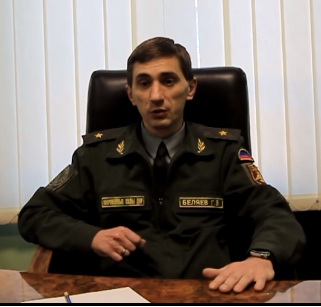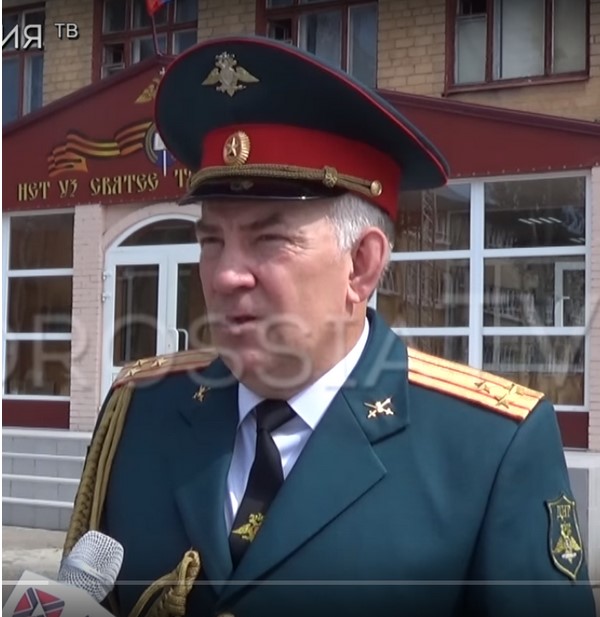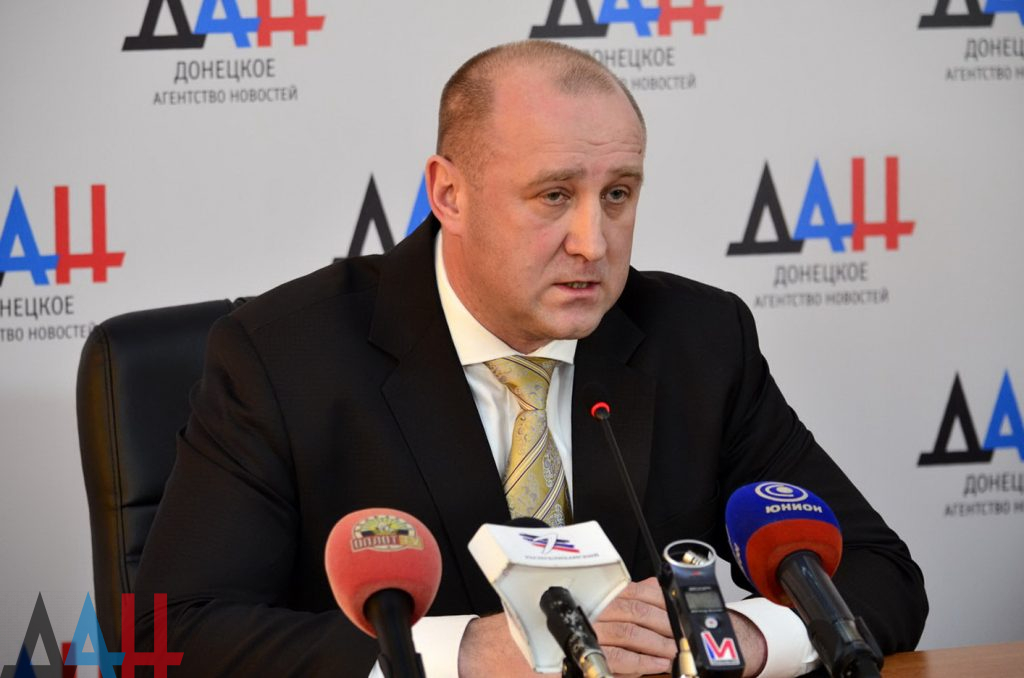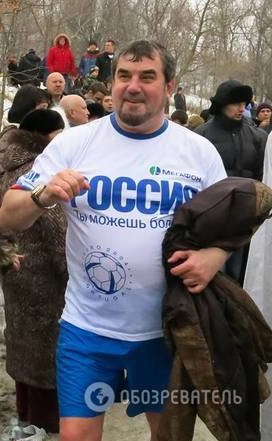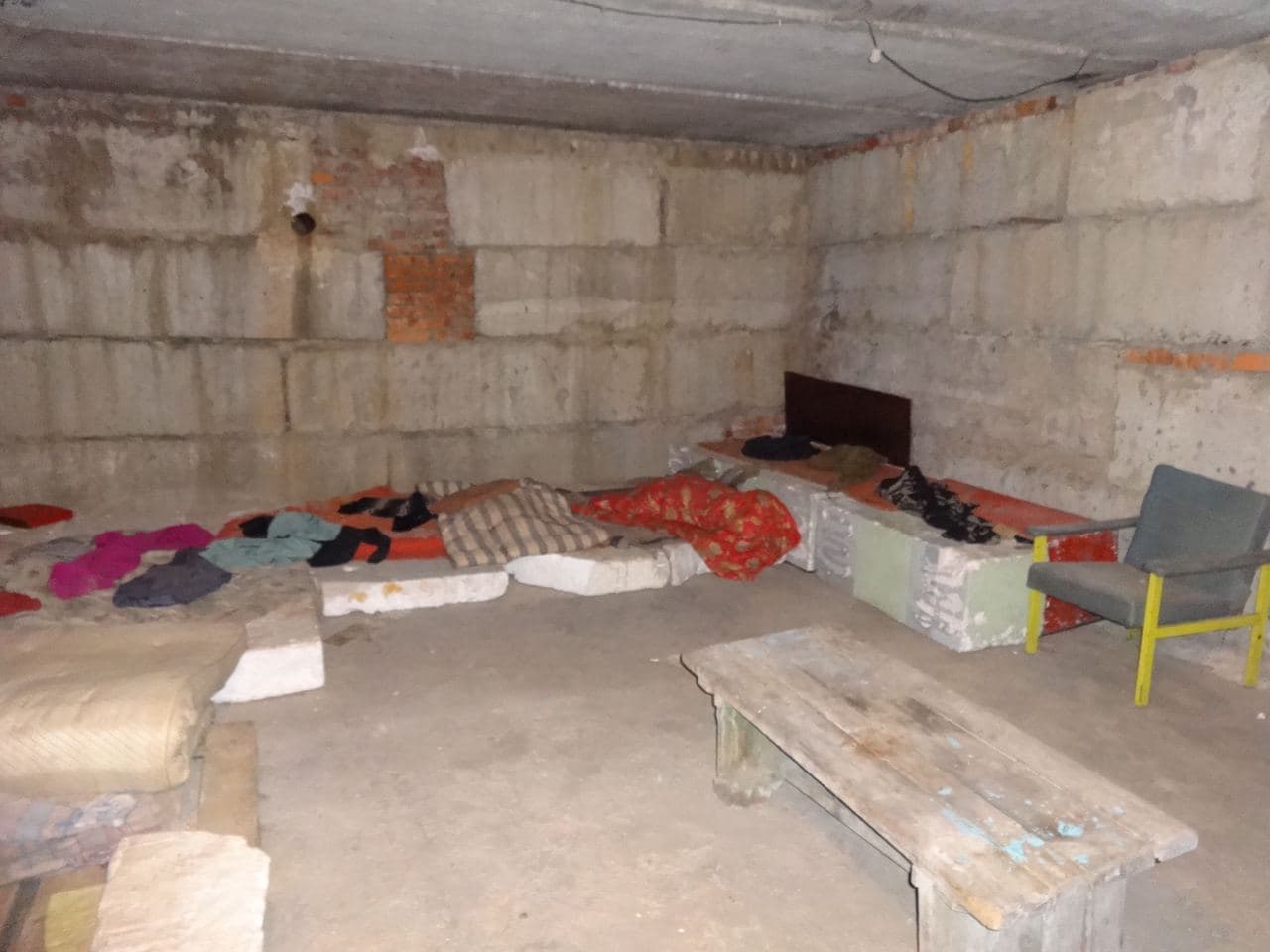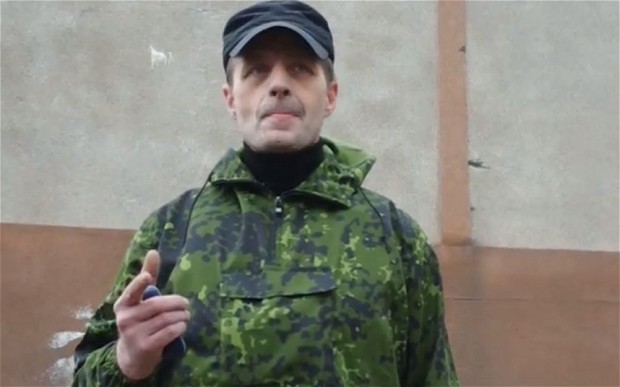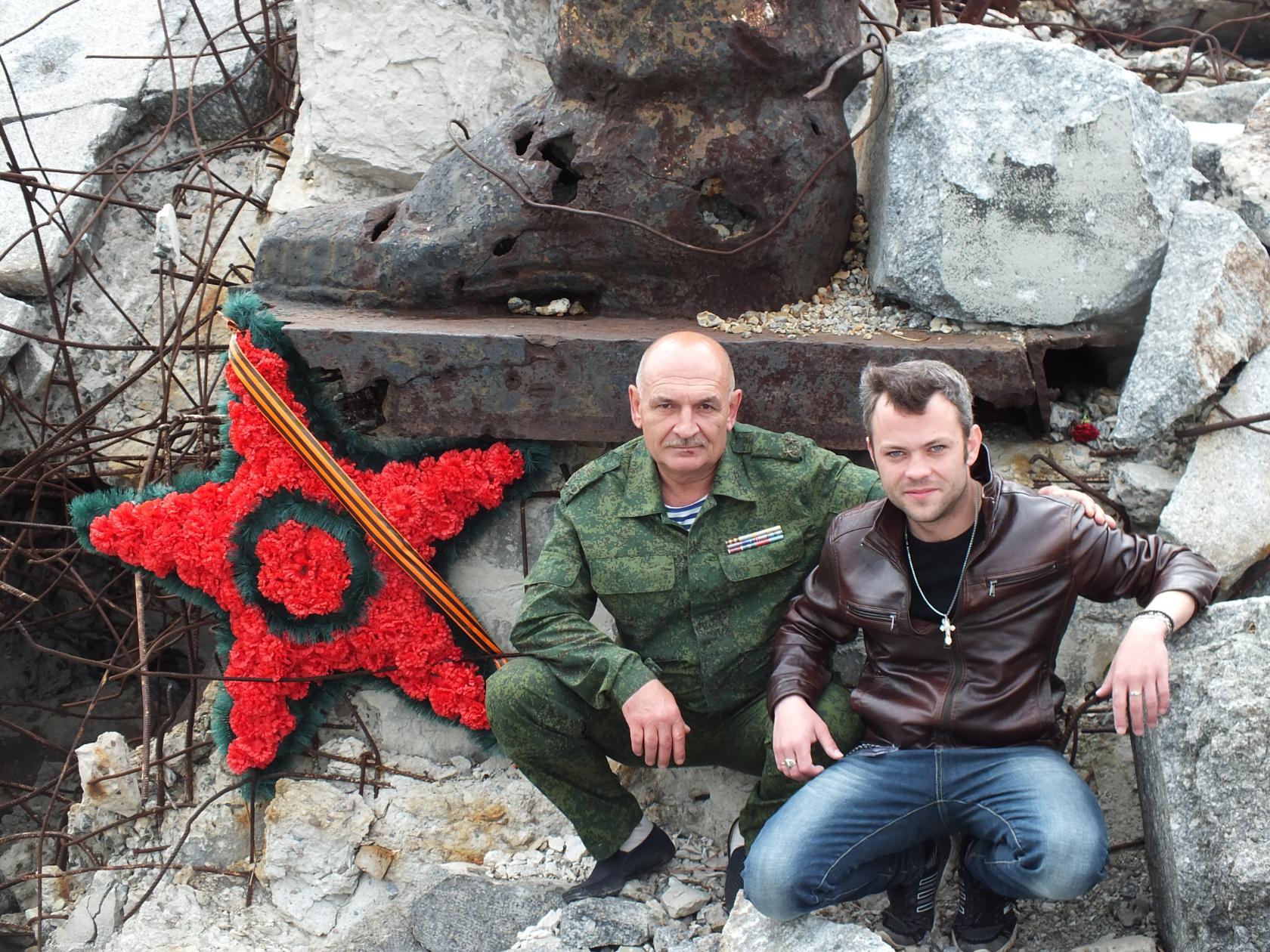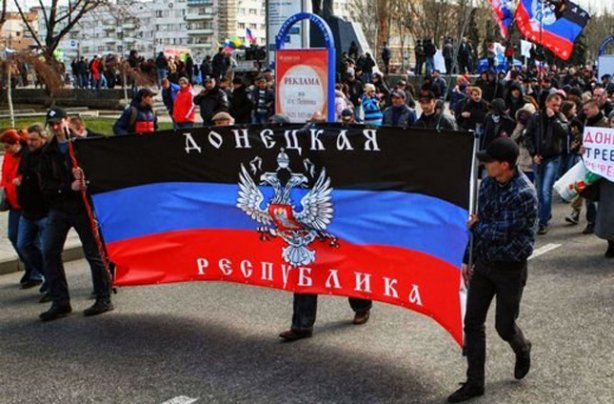Background of the takeover of Donbas
The protests against the Euromaidan (2013-2014) in Luhansk and Donetsk were mostly staged by pro-Russian local elites, linked to the Yanukovych's Party of Regions (PoR). However, Russia supported any organizations and parties opposing the official Kyiv regardless of their ideology. The Russian intention was to sow chaos for creating the environment of uncertainty to instigate the separatist processes. Local left parties were involved in protests, such as the Communist Party of Ukraine (CPU), the Progressive Socialist Party of Ukraine (PSPU). Unpopular pro-Russian parties such as the Russian Bloc, "Ukraine's Choice" were also active players.
The Local Donetsk and Luhansk elites were fooled about Russia's plans. They believed that the Kremlin was once again their ally in bargaining more local power over the region from Kyiv just like the PoR did in 2005 after the Orange Revolution, or the elites were convinced that Russia was going to annex their Ukrainian regions as it did with Crimea. Neither was real.
Read also: “Donetsk People’s Republic” ex-PM inadvertently admits he carried out Kremlin plans
As of February 2014, Donetsk Oblast was almost fully controlled by tycoon Akhmetov and the so-called "regionaires," members of the Yanukovych's Party of Regions. In the beginning of March, the separatists proclaimed Pavel Gubarev what they called a "people's governor of Donetsk Oblast."
Gubarev was a former member of a Russian neo-nazi party, the Russian National Unity (RNE). Denis Pushilin, a local representative of a Russian Ponzi scheme company MMM, became Gubarev's deputy back then.
Aleksandr Zakharchenko, a Ukrainian citizen who was a chieftain of one of the Russian-trained militia groups that emerged in Donetsk in spring 2014, was appointed a "military commandant of Donetsk." Later he became the "DNR head."
One more prominent separatist leader in 2014 was Andrey Purgin, who had co-founded a separatist organization "Donetsk Republic" back in 2005. The "Donetsk Republic" wasn't widely known until 2014, when the organization was promoted to a ruling party in the separatist pseudo-parliament.
The process of creating a fake statelet in Donetsk was controlled by Putin's aide Vladislav Surkov, who supervises the Kremlin separatist projects in the occupied territories of Ukraine and Georgia. Since 2015, he represents Russia in US-Russia talks on Ukraine. In 2015-2016, Surkov's American counterpart was Victoria Nuland, Assistant Secretary of State for Obama's Administration and the negotiations were unofficial. This year, US Secretary of State Rex Tillerson appointed Kurt Volker as the United States Special Representative for Ukraine Negotiations.
As of now, most of the leaders of occupied Donetsk are under the US and EU sanctions. Putin's aide Surkov was placed under sanctions in mid-March 2014 as one of the organizers of the Crimean referendum staged by Russia to declare the Ukrainian peninsula independent and annex it a day later.
As of 2017, Aleksandr Zakharchenko concentrated most of the political power in Donetsk in his hands. His main political rival remains head of separatist government Denis Pushilin, who also represents Russia's DNR in the Trilateral (Ukraine, Russia, OSCE) Contact Group on Ukraine, which was created to settle the military conflict in the Donbas.
Influential groups in occupied Donetsk
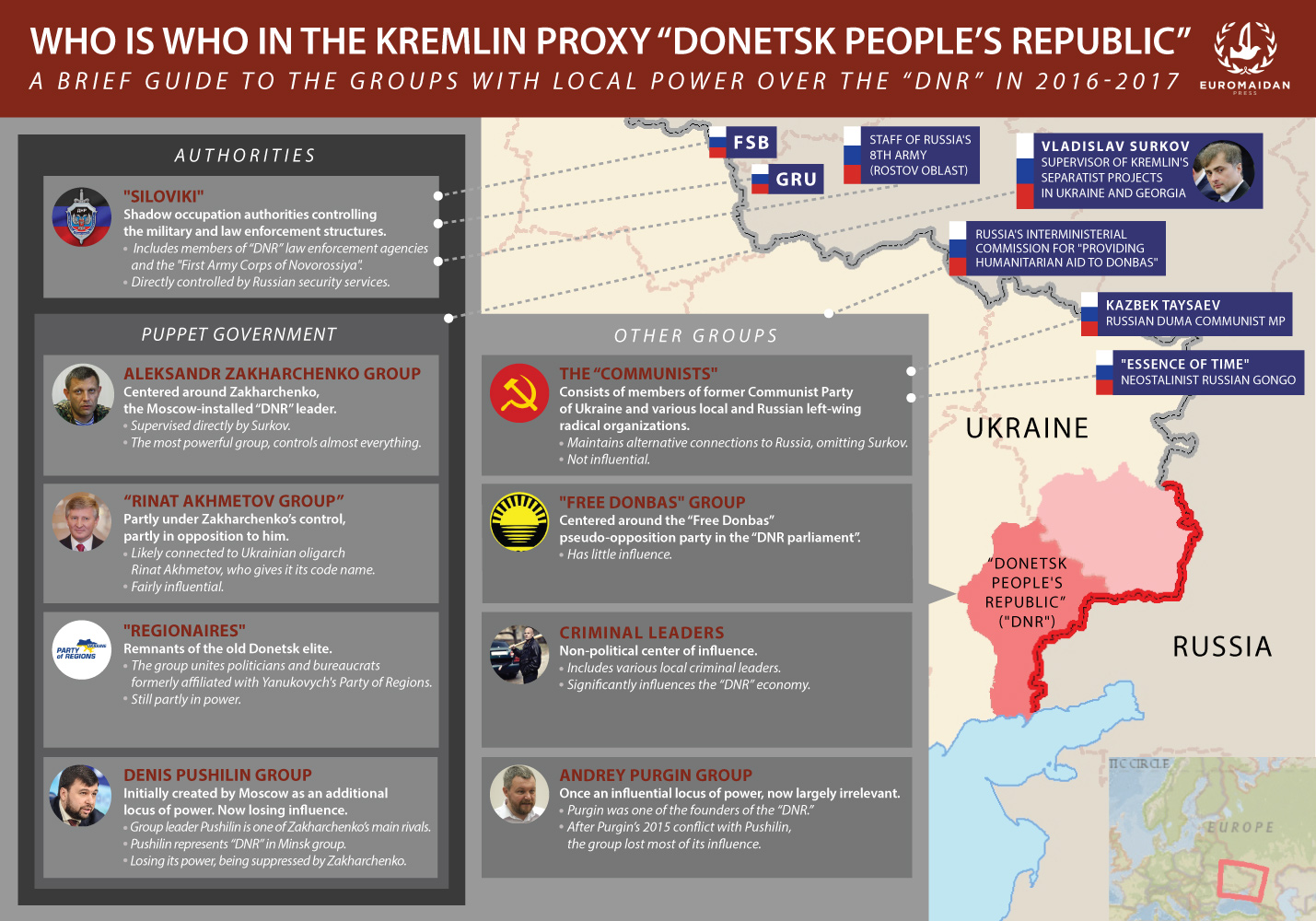
Outsiders linked to DNR influence groups
Here is the list of personalities and organizations mentioned as linked to DNR internal influence groups outside the territory of the occupied areas of the Donetsk Oblast where the DNR operates:
- Russia's "Inter-ministerial Commission for the Provision of Humanitarian Aid for the affected Areas in the Southeast of the Regions of Donetsk and Luhansk" according to BILD is kind of a shadow government for the occupied territories of the Donbas, its mandate goes far beyond "humanitarian issues."
- Kremlin’s aide Vladislav Surkov has full control of both Donetsk and Luhansk "republics," he is the Kremlin's only envoy to the talks on Ukraine with the USA.
- The GRU (Main Directorate of the General Staff of the Russian Armed Forces) is the Russian military intelligence service, its servicemen are directly involved in the military reconnaissance in the Donbas.
- The FSB (Russia's Federal Security Service) control special services of the puppet republic.
- The Staff of the Russia's 8th combined-arms army of the South Military District of the Russian Federation has full control of the 1st Army Corps DNR, formed in Donetsk.
- Vyacheslav Volodin was linked to Purgin group's funding as he served as a deputy head of the presidential administration, later he became a Speaker of the Russia's State Duma.
- "Essence of Time" is a Russian neo-Stalinist nationalist movement by Sergey Kurginyan, the movement is directly linked to its local group in Donetsk.
- Russian deputy of the State Duma Kazbek Taysaev (Communist Party) is an intermediary of the Russian communists who fund the so-called Communist party of DNR.
- Fugitive warlords Yuri Safonenko, Igor Girkin, Igor Bezler, Vladimir Novikov who fled Donetsk to Russia usually criticize leaders of DNR and sometimes the pseudo-state in general.
- So do fugitive radical separatists Yevgeny Shabaev, Roman Lyagin. The latter fled not to Russia but to Russia-occupied Crimea and became a harsh critic of the DNR.
- Old Donetsk elite consists mostly former members of the Yanukovych's Party of Regions who fled Donetsk in 2014 to Russia or Ukraine. Some of them departed merely after then president of Ukraine Viktor Yanukovych fled to the Russian city of Rostov-on-Don in February 2014, others left the province as the war burst out in the region between Ukrainian forces and the Russian-hybrid army (Summer 2014).
Influential groups of DNR
Actual influential groups in the temporarily occupied territory of Donetsk Oblast can be distinguished on the ground of researching the main military and political loci of influence of the so-called Donetsk People's Republic ("DNR") regardless the level of their involvement in the political process. Let's take a closer look at the main groups as per the analysis of the centers of influence, having their branches (factions, separate groups). The analysis is based on the 2016-2017 data of DNR blogosphere and other open sources of information.
1. "Siloviki"
Siloviki is a post-Soviet term for "securocrats" - officers of all special services including army, police, spy agencies. This group includes members of law enforcement agencies of the "DNR" and the military operational command "Donetsk." The group is under Russia's full external control. "Siloviki" enforce the occupation policy in the background of the political structures formed in the occupied territory of the province to create an illusion of statesmanship of the proxy state. The subgroups within the group are as follows:
"The military" are officers of the operational command "Donetsk" ("the First Army Corps of Novorossiya") and of the GRU (the Main Directorate of the General Staff of the Russian Armed Forces). According to the Informational Resistance project, this Army Corps is under command of the Staff of the 8th combined-arms army of the South Military District of the Russian Federation.
"Law enforcers" (FSB group) is a subgroup containing officers of "MGB" (a security service named after WWII-times KGB's then name), "MVD" ("Ministry of Internal Affairs"), "Prosecutor-General Office," "Supreme Court," "police." Unlike "DNR's" twin, the "LNR," no serious conflicts have been recorded within this group. Members of this group are more probably struggling with the Russian officers ruling operational command "Donetsk" for the control of the Russia's budget funding feeding Donetsk separatist forces.
Members of this group are Vladimir Pavlenko, Aleskey Dikiy, Eduard Yakubovsky, Aleksandr Kushch, Georgy Sepashvili, Igor Zagorodny, Andrey Spivak, head of Department of Organized Crime Control of MVD DNR Sergey Tishchenko etc. This group increased its impact since the beginning of 2016. The group is controlled by the FSB.
There was an attempt to take control of "police authorities" by MGB DNR. Conflicts were recorded with the group of Timofeyev-Kuleshov.
2. Aleksandr Zakharchenko team
This main influential political center was formed around the figure of Aleksandr Zakharchenko, Moscow-installed leader of the puppet Donetsk People's Republic, on the ground of interests of several different military units and bureaucracy. The group includes the representatives of the so-called new Donetsk clan under the leadership of Zakharchenko, as well as Yanukovych-era bureaucrats from the oblast administration, city and raion councils. Subgroups within this influential center are as follows:
Zakharchenko subgroup is the group's center acting as a moderator in the relations between other clans in the separatist power hierarchy.
So-called mayors of several cities gravitate toward this subgroup, such as Ivan Prikhodko (Horlivka), Andrey Darkovsky (Snizhne), Igor Martynov (ex-mayor of Donetsk) and other.
Aleksandr Kazakov, personal image-maker of Zakharchenko from Surkov's team, can be designated as a member of this subgroup, as well as a string of the members of the People's Soviet of DNR (fake parliament) such as Yekaterina Martyanova, Vyacheslav Soloshin, Andrey Borisov, Vasily Tkachuk.
Zakharchenko subgroup is consistently criticized by fugitive field commanders (Yuri Safonenko, Igor Girkin, Igor Bezler, Vladimir Novikov etc) and fugitive radical wing separatists (Yevgeny Shabaev, Roman Lyagin etc).
Timofeyev-Kuleshov subgroup is one of the most influential decision-making centers of the "DNR," controlling small and medium enterprises by the means of "nationalizing" the markets and introducing a new taxation system. Leaders of this group, Aleksandr Timofeev (call sign "Tashkent") and Konstantin Kuleshov are involved in high-scale schemes of the racket, seizing of businesses and real estates. The illegal armed group "Oplot" serves the subgroup's leaders.
The group has ties to Vladislav Surkov and Aleksandr Babkov.
Timofeyev-Kuleshov subgroup conflicts with subgroups of Sergey Zavdoveyev (low-level conflict), Aleksandr Khodakovsky, "siloviki", radical separatists.
Sergey Zavdoveyev subgroup includes militants of the armed gang "Unit of special risk Legion." Sergey Zavdoveyev increases his power to control markets of the DNR for benefit of Zakharchenko (Legion gang is used for that) to diminish the influence of Aleksandr Timofeyev. Zavdoveyev also puts pressure on Zakharchenko key rival, field commander Aleksandr Khodakovsky. The subgroup's leader is also a coordinator of the organization "Oplot of the Donbas."
Among other members of the subgroup there are:
- deputy of the "People's Soviet" Andrey Miroshnichenko;
- deputy of the "People's Soviet" Mikhail Tikhonov;
- director of the state regulation department of appraisal of property Yelena Bort;
- commander of the "Republic's Guard" Grigory Belyayev;
- head of the "Donetsk higher combined-arms command school" Aleksandr Kurenkov.
Zakharchenko uses this wing of the separatists to weaken the political position of Denis Pushilin group in the leadership of "Donetsk Republic" organization (one of local pseudo parties created by Surkov for the illusion of a real political process among separatists). In particular, Zavdoveyev was appointed to the position of the secretary of the executive committee of the organization.
Zavdoveyev subgroup has virtually merged the Anatoly Koval (call sign "Palych") subgroup after Koval was dismissed from the seat of the head of the "Donetsk Republic" faction.
Makiivka subgroup emerged within Donetsk Republic organization. It comprises of "ministers" Larisa Tolstykina, Mikhail Mishin, Igor Andriyenko, "people's deputy" Yuri Pokintelitsa etc. The subgroup is fully controlled by Zakharchenko, it has contacts with "Regionaires," former members or Yanukovych's Party of Regions.
3. Denis Pushilin group
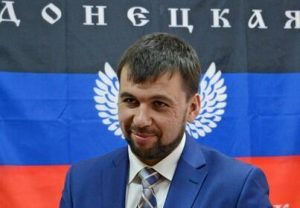
Earlier, this wing of separatists could be classified as a part of the "Rinat Akhmetov's group," but since 2015 Pushilin's group is behaving more independently and forming direct connections to Vladislav Surkov's team. The group could be connected to the "Old Donetsk elite" and "Regionaires," however, the overall potential of the group has gone down during 2017.
4. "Rinat Akhmetov group"
The group has been conventionally named after Ukrainian oligarch Rinat Akhmetov since this political wing of Donetsk separatists can be linked to the oligarch.

Dmitry Trapeznikov subgroup is led by "vice prime minister of DNR" Dmitry Trapeznikov, formerly the head of fan-club of Akhmetov's Shakhtar Donetsk football club, head of Petrovskyi district of Donetsk. He emerged the winner in his conflict with "head of the administration of the DNR head" Maksim Leshchenko, this made him more influential in Donetsk and strengthened his connections to the "Regionaires." Trapeznikov de-facto coordinates activities of the members of "the administration of the DNR head" Aleksandr Pototsky, Anna Kotova, Aleksandr Zakharov, partly influences over Yelena Filippova controlled by Zakharchenko. Ex-mayor of Donetsk, Igor Martynov, now deputy head of Zakharchenko's administration on social issues, remains out of Trapeznikov's control.
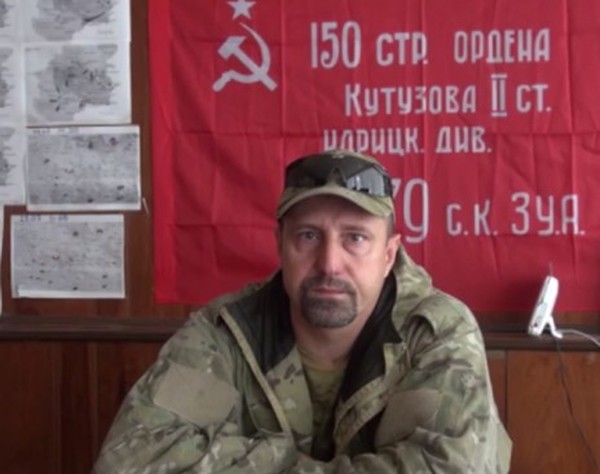
Aleksandr Khodakovsky subgroup unites militants of the illegal armed group "Vostok" and separatist organization "Patriotic forces of the Donbas." Subgroup's members attempt to disassociate themselves from Rinat Akhmetov and play independently, positioning themselves as rivals of Aleksandr Zakharchenko. The most prominent members of the group are:
- commander of Vostok Aleksandr Khodakovsky;
- "ex-mayor" of Yasynuvata Yuri Yanenko (call sign "Korsar");
- director of a children military and sports camp in Amvrosiivka Raion, the former member of Vostok gang Andrey Likhatsky (call sign "Major");
- coordinator of an internet channel "Dialog" Ramil Zamdikhanov;
- former warlords from Vostok who joined the political council of the "Patriotic Forces of the Donbas:" Sergey Maystrenko, Boris Khlipetko, Sergey Sklyarenko, Petr Savchenko etc
Khodakovsky had a conflict with Zavdoveyev group, namely with Vladimir Lebedev from the team of former "mayor" of Yasynuvata Dmitry Shekhovtsov.
5. "Regionaires"
"Regionaires" is a group uniting politicians and bureaucrats, who formerly had posts in regional bodies, affiliated with the Yanukovych's Party of Regions (PoR).
The most influential core of this group consists of the following subgroups:
Aleksey Granovsky subgroup includes former members of the PoR and PoR-affiliated bureaucrats from the Donetsk City Council and the Donetsk Oblast State Administration. Other members of the group are allegedly former head of "the administration of the strategy of DNR industrial development" Eduard Polyakov, "minister of coal and energy" Eduard Golenko.
Aleksandr Bobkov subgroup. Former Ukraine's MP Bobkov controls the illegal armed group "Pyatnashka," manned with foreign mercenaries. A noteworthy detail is that after Abkhaz mercenary Akhri Avidzbi was dismissed, command of the armed group was taken by Stavros Bagateliya who controls the supermarket chain "First Republic's Supermarket." Aleksandr Bobkov had a hand in funding the illegal armed group "Oplot," worked for a member of "Old Donetsk elite," MP Borys Kolesnikov. Bobkov wasn't included on international sanction lists and remains one of the contact persons between Ukraine and the "DNR," as well as between the "DNR" and the criminal community.
Aleksandr Bobkov works closely with Aleksandr Zakharchenko and Aleksandr Timofeyev. Apparently, he is in contact with Vladislav Surkov. Bobkov has strained relations with Aleksandr Khodakovsky. Being one of the DNR "gray cardinals," Bobkov has a potential for creating an influential political group in future.
6. Andrey Purgin group
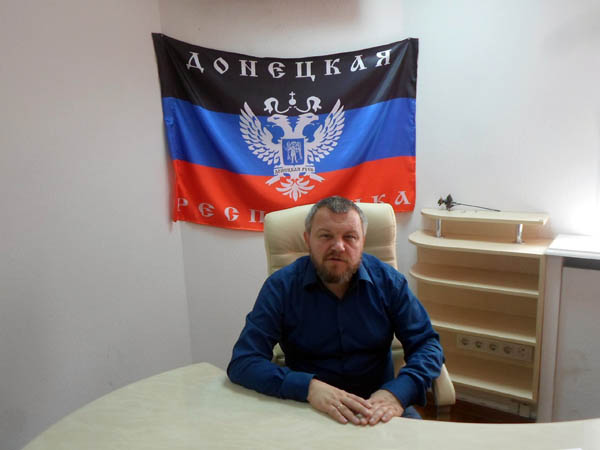
Purgin group tends to slow down activities after his resignation from the post of the speaker for the "People's Soviet of DNR" and after his conflict with Denis Pushilin in September 2015. Since "MGB DNR" opposed it, the group gradually lost its influence on political processes in Donetsk. As group's key sponsor Vyacheslav Volodin left Putin's administration and became a speaker of the Russia's State Duma, members of Purgin's group started to lose their funding sources. The vast majority of this separatist wing fled to Russia, its other members are less active, nevertheless, they tried to build relationships with Khodakovsky group.
7. "Free Donbas"
The group was based on the eponymous separatist organization, another fake party represented in the "People's Soviet of DNR." It includes the following subgroups:

"Novorossiya" is a political wing of the Donetsk separatists, espousing the Ukraine's breakup and establishing of so-called "Novorossiya," including eight south-eastern oblasts of Ukraine and Moldova's breakaway region of Transnistria. The subgroup's leaders are Pavel Gubarev and Yekaterina Gubareva. This subgroup joined "Free Donbas" in October 2014 after an attempt upon the life of Gubarev and his conflict with the leaders of "Donetsk Republic."
The group keeps contacts with Igor Girkin, seeks incriminatory evidence on Zakharchenko. "Novorossiya" has an onerous conflict with the groups of Zakharchenko and Khodakovsky. It has de-facto merged the subgroup "SVD Berkut" chaired by Yuri Sivokonenko.
Orlov-Rudenko subgroup consists of the immediate creators of "Free Donbas" organization Yevgeny Orlov, Miroslav Rudenko. This separatist wing doesn't take an active part in the Donetsk political processes as of now, mostly promoting themselves in the occupied cities. Lately, separatist media outlets ignore the group's activities.
8."Communists"
This group comprises of the members of former Communist Party of Ukraine (CPU) and different left-wing radical organizations.

Boris Litvinov's wing consists of the members of so-called "Communist party of DNR" (CPDNR) and former communists of Donetsk Oblast. The group is popular among local residents, maintains ties to the "Communist party of LNR" and the Communist Party of the Russian Federation (CPRF). Donetsk "Communists" are funded by the CPRF via the Russian MP Kazbek Taysaev. Zakharchenko group oppresses members of CPDNR.
Other subgroups, Vladimir Bidyovka group, "Workers party of the Donbas," "Sut Vremeni" ("Essence of Time"), have no significant impact on political processes in the "DNR" and play minor roles.
9. Criminal leaders
The group of criminal leaders doesn't participate in the political processes but takes a significant part in the "DNR" economy, it is involved in large-scale smuggling schemes to Ukraine and Russia, and back. According to the investigation by Ukrainian journalist Anton Furmanyuk, the following persons are heavyweights in this group:
Andrey Orlov is a former MP, partner of Donetsk oligarch Viktor Nusenkis. who controlled eight coal-cleaning plants, Horlivka coke plant and other assets in Donetsk Oblast. His wife owns a hotel "Evropa" in occupied Crimea. Together with Bobkov, Orlov owns several illegal makeshift coal mines (so-called kopankas) in "DNR." Irina Nikitina, former head of Orlov's "Evroprombank" became a director of the so-called "Central Republic's Bank of DNR" and a "deputy head of DNR finance minister."
Yuri Chertkov was a PoR MP. He controls alcohol counterfeit production in "DNR" and its selling in Ukraine. Chertkov was known in Donetsk since the 1990s, as he participated in one of mafia groups. Since the beginning of the war in the Donbas, he funded the illegal armed group "Russian orthodox army."
Cigarette smugglers
- Vyacheslav Lyashko is a son of mafia boss nicknamed "Mishanya Kosoy", who was killed in occupied Crimea in 2015. As of now, Lyashko Jr is one of the directors of two enterprises of Donetsk tobacco company "Khamadey."
- Vitaly Mitla is one those who arranged to smuggle Khamadey-made counterfeit tobacco products to Ukraine and Europe. Earlier he was a deputy of "the People's Soviet of DNR."
- Parubets brothers, Vladimir ("Liver") and Anatoly ("Graf") are criminal leaders who control activities of "Khamadey" factories together with Vyacheslav Lyashko.

